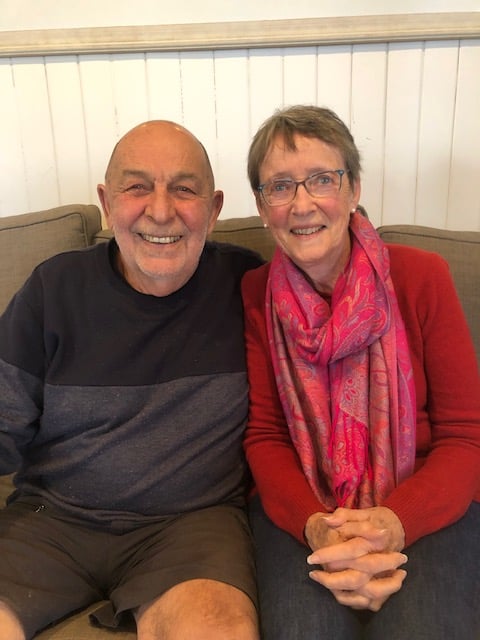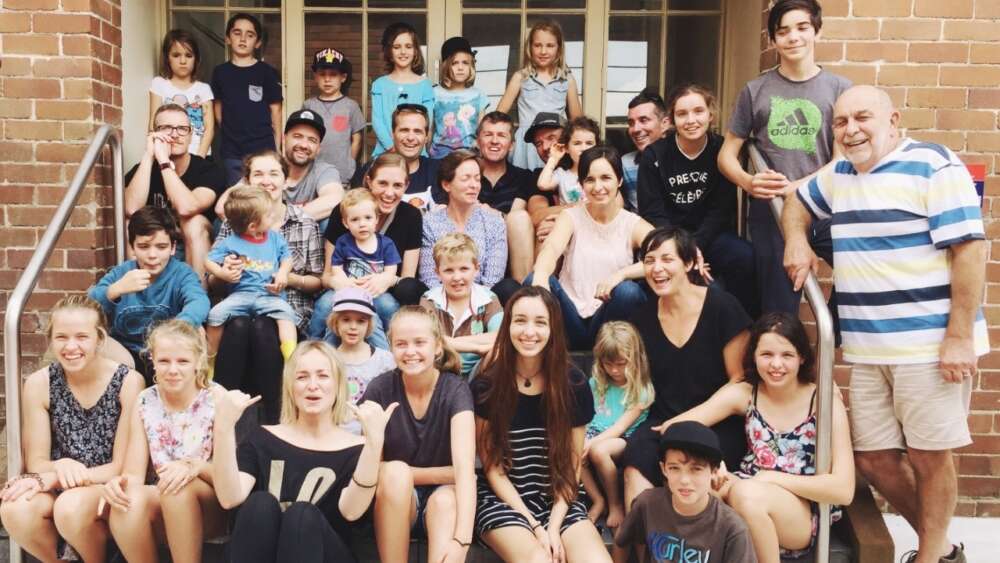God asked them to love babies through foster care, Australia awarded them OAMs
Carolyn Stedman was in her kitchen on Sydney’s North Shore when she heard an ad on the radio saying there was a critical shortage of foster parents in NSW. The young mum already had two children aged 4 and 2 – and was planning to have more – but her response was immediate.
“I thought to myself, ‘I like being at home with my children, I didn’t ever love going into the city to work. I mean, I did it, but it wasn’t one of my favourite things to do. I like going to playgroup. And I know I’m patient with children. I could do that’,” she tells Eternity.
“So when they gave a phone number over the radio I took the phone number down, and when David came home, we had a bit of a chat about it. And the next thing we found ourselves doing a training course, and then we had our first placement.”
That was back in 1976 and over the intervening 46 years, Carolyn and David have fostered 74 children – mostly babies, often born to drug-addicted mothers, or those who have been abandoned at the hospital.
For their extraordinary service, Carolyn and David were recognised with medals of the Order of Australia (OAM) in the Queen’s Birthday Honours list this week.

David and Carolyn Stedman
Carolyn continued to take babies on temporary foster care placements while raising her own six children, although she took a two-year break after having each baby. “And that worked,” she says.
They didn’t always come individually, either. “They like to keep sibling groups together. So we often had two little brothers or two little sisters together, and we had three sets of twins over the years.”
There was one occasion when the Stedmans had nine children under the one roof – their own six and three extras. “That happened to be when the census man came along,” David told Channel 7.
“He gave us one form, and it only had enough room for six. So we had to chase him and get another form. And he said, ‘What have you got there, a commune?’”
Carolyn says she does prefer to take one baby at a time because they are often unwell and need extra care.
“Most of them are withdrawing from something or they’ve been neglected or abused. So they’re needy, and doing one at a time is easier,” she says.
“Even 18 months down the track, you can tell which babies are drug addicts because once you’re a drug addict, you’re always a drug addict whether are you using or not. I can tell the behaviour of children that have been born to drug addicts.”
“Even 18 months down the track, you can tell which babies are drug addicts.” – Carolyn Stedman
While stressing that she has no medical training, Carolyn says such children are tense and jumpy with tight muscles and an inability to sit still.
When “heroin babies” cry, their scream is particularly penetrating, which Carolyn thinks may have damaged her hearing.
“I now wear hearing aids, and I think it’s because some of the heroin babies screamed in my ear when you’re nursing them, and their head’s up on your shoulder.”
The strategies she developed to settle the babies were very firm swaddling, and lots of movement.
“Drug-addicted babies like to be moved all the time, patted or put on the bouncinette. The last baby we had, one night I rocked her on the bouncinette for five hours. I gave her a feed in that time, but for five hours, I rocked her just with my foot while I was watching television – it’s not too onerous – but that was the only way to keep her quiet.”
“I think it also gave them an appreciation of being bought up in a stable, loving family.”
Carolyn says her children were happy to help out once they reached their teenage years.
“In fact, when we had twins, sometimes our older teenage girls would take one of the babies in their bedrooms and feed them just to give us a break.”
She believes the experience gave her children a “very realistic expectation of what it was like to look after babies. I think it also gave them an appreciation of being bought up in a stable, loving family when they heard all the traumatic stories that came with these children.
“Everyone has a very different traumatic story, but they are all awful. One came with three broken limbs from being pushed – an arm and both legs were broken. We’ve had some babies that were terribly neglected. Often, they’ve come with a nappy that has been obviously been on for days and days and days. And you have to soak them in a bath to get it off,” she says.
“On the other hand, there are babies we picked up from hospital who haven’t been drug addicts. They’ve just been left in hospital because their mother hasn’t wanted them, and she’s ducked off, and nobody can find her.”
“God expects you to use your gift while ever you can.”
Now 75, Carolyn has no intention of stopping caring for babies until she has to.
“I just believe that we have a God-given gift, the gift of caring, and I just believe that if God has given you a gift, God expects you to use it. So many people say to us, ‘When are you going to stop doing this?’ And I say, ‘Well, the Bible doesn’t say anything at all about retirement.’ I’ve done quite a bit of going to church every Sunday my entire life. And I’ve never heard of a sermon on retirement. So God expects you to use your gift while ever you can, then when you can’t, then you’re allowed to stop.”
Carolyn says she often seeks prayer support from her church and Bible study friends.
“The most recent child we had, for 18 months, a dear little 18-month-old child, is about to be deported because she is an illegal immigrant, and that’s what we do in Australia. So all of our Bible study groups are currently praying for this little girl about to be deported next week. That’s heartbreaking.
“So to have the honour of this award and being able to do a bit more promotion of foster care and what a wonderful service it is and how necessary it is, that’s a real privilege.”
Carolyn admits that while many days are hard, there is joy in watching a child develop naturally and well.
“The last baby we had, she had syphilis as well as withdrawing from drugs – and they thought she had cerebral palsy. That little girl did really well. In fact, she did too well; by the time she left, she could climb onto the dining room table, and she could open every kitchen cupboard door. And when she got the TV remote in her hand, she could run faster than me!”
As well as taking every child to church, Carolyn and David also ensure that every child leaves them with a children’s Bible from Bible Society Australia.
“Our last placement took her ‘Bible for Bubs’ back to Thailand with her because that is a beautiful Bible for children. Whoever did the graphics is very talented, and they’re gorgeous.”
“I did feel proud that I could see, when those babies were being taken away at the end of their time with my family, at how much love was in them now.” – Cate Giovanelli
Being exposed to the hardships of child-rearing has not deterred her own children from having families. “Now, let me tell you, we have 26 grandchildren, so they went forward, and they multiplied. One’s got six; one’s got five, and several have got four.”
The Stedmans youngest, Cate Giovanelli, wrote on Facebook of the conflicting feelings she’d felt about her experiences of fostering.
“I didn’t always feel proud when I was asked as a teenager to rock the bassinet of the new baby for the thousandth time because they were going cold turkey and wouldn’t stop screaming. I didn’t always feel proud when mum couldn’t take me to ‘this or that’ because of ‘the baby’. And I didn’t feel proud when I had to say goodbye to a soul that we had taken into our home, a soul we had cared for and fed and cuddled until they fell in love with us and we with them,” she wrote.
“As I watched them being taken away by the government worker, I thought, even as a 10-year-old, ‘Who will know she wants her favourite toy when she cries that way?’ or ‘Will she sit alone in her cot at night crying because she doesn’t know where we are?’ I would say that heartache was something I learned to ‘manage’ from a young age. And if there is one thing I have learned in life, it’s that heartache can’t be managed. And it doesn’t get any easier the more your heart endures it.
“I did feel proud when FINALLY as the youngest of six, I got to ‘not be the baby’ and I had a younger sibling on which to dote. And I did feel proud that I could see, when those babies were being taken away at the end of their time with my family, at how much love was in them now. At how they had seen and felt and lived in love. At how cherished they had been. At how they had overcome addiction or broken bones while we loved them. And I always hoped that no matter where they went, that they would be changed from what they were and that they would never forget that they were loved. Even though they wouldn’t remember us.
“I didn’t choose this childhood for myself. But my parents did. And today, they have been recognised. Well done, Mum and Dad.”
Email This Story
Why not send this to a friend?


